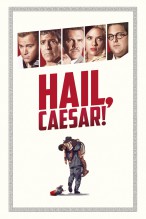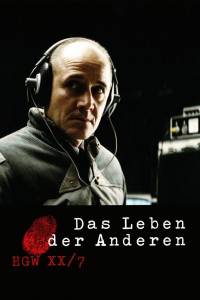Overview
Tells the comedic tale of Eddie Mannix, a fixer who worked for the Hollywood studios in the 1950s. The story finds him at work when a star mysteriously disappears in the middle of filming.
I have been a fan of the Coen Brothers ever since seeing “Blood Simple” at a run-down London cinema in 1984. Joel & Ethan Cohen have flipped between genres since their stunning thriller debut 32 years ago. They have made more noir style movies, including the sublime “Fargo”, comedies like “The Big Lebowski” and “Raising Arizona” and even ventured perilously close to a musical in “Oh Brother Where Are Thou”. “Hail Caesar!” is a gentle comedy on the surface, but seems to me more a homage to the glory days of the Hollywood studio system in the 1930s-50s. At that time the “big five” studios (Warner, RKO, Fox, Loew and Paramount) controlled every aspect of film production, from script writing through to distribution. Actors were on contract to a studio, who managed every aspect of their career and their public image.
In such a studio resides the character of Eddie Mannix (played by Josh Brolin), head of production, fixer and problem solver supreme. Mannix, ably supported by his well-organised secretary, brings order to chaos, resolving assorted melt-downs that occur on and off set with panache and determination. Used to dealing with the media in the form of pushy identical twin journalists (played by Tilda Swinton) through to assorted casting issues, he suddenly finds his biggest star Baird Whitlock (George Clooney) has gone missing in the middle of filming biblical epic “Hail Caesar!”. Mr Whitlock has not just disappeared on a bender but has been kidnapped by a mysterious group calling themselves “The Future”. The movie follows Mannix as he applies all his ingenuity to avoiding a costly meltdown of his biggest budget movie, which is now without its star. The film takes in loving and extended sequences of other films being shot, from a bar-room musical sequence to an elaborate display of aquatic synchronised swimming featuring Scarlett Johansson as a mermaid. Mannix’s skills are evident as he pieces together what has happened to his star, enlisting the help of cowboy star Hobie Doyle (Alden Ehrenreich), who has been disastrously miscast in a costume drama directed by prissy English director Laurence Laurentz (Ralph Fiennes).
The plot becomes increasingly surreal as events unfold, but the story is incidental to the Hollywood homage, and this is the root of its issues. The cameos are well-delivered, with Ralph Fiennes especially put-upon as the exasperated director trying to deal with his cowpoke romantic lead shoe-horned into a dinner jacket, who as an actor has all the emotional range of a saddle. Scarlet Johansson also excels as the mermaid with a secret. The film certainly doesn’t drag, as it happily romps along from set piece to set piece, but this feels like a Hollywood insider’s movie, made by people that clearly love film and are very aware of its history. In all the clever references the Coens somehow manage to lose sight of the need for the film to be funny, not just wryly observed. As a viewer you will smile knowingly throughout, especially if you are a film buff, but it is much less likely that you will laugh out loud at any point. It is clever, it is beautifully shot, but where are the laughs? I counted just two really funny lines, one of which was in the film’s trailer. “Hail Caesar!” seems to me just a bit too pleased with itself, a little too knowing, but a comedy needs to make an audience laugh. For all its slickness and nudge-nudge nods to the machinations of Tinseltown, this viewer at least smiled and admired, but never really felt engaged with a comedy. In the studio era, gems like “Bringing up Baby” were not just star vehicles but managed to take the audience on a fantastical journey. This film feels instead like a Universal Studios tour – you can look at the lavish sets and name check the famous actors doing their cameos, but you never feel truly swept up by the story.
(6/10)










